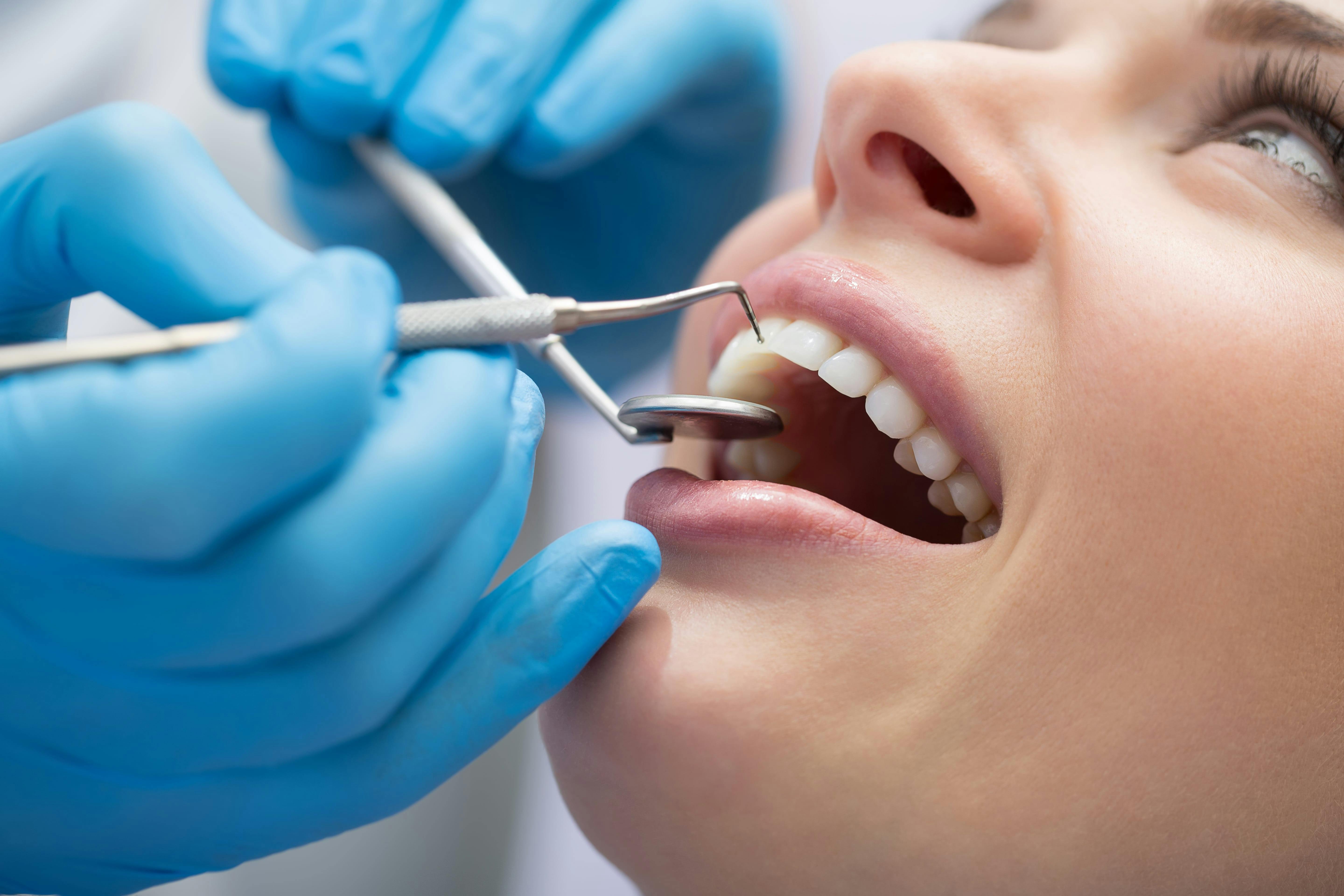What Is Tartar?

If you read the packaging of your oral health products, you’ve probably encountered the words plaque and tartar. What do these words mean? Tartar, also known as calculus, is caused by the buildup of dental plaque on your teeth.1 Tartar can make your teeth harder to clean and cause dental problems in the future.1 However, you can prevent tartar with good oral hygiene, which should include a fluoride toothpaste along with other tools your dental professional can recommend.1 Read on to learn what tartar is made of, how it affects your gums and how it’s removed.
What Causes Tartar on Your Teeth?
Your teeth are covered in plaque—a thin, sticky film that contains many types of bacteria. If the plaque isn’t removed routinely, it can buildup and eventually harden into tartar.1,2 Tartar can form both above and below the gumline, making it harder to keep your teeth clean and prevent gum disease.3,4
When you eat food that contains sugar, the foods release acids that attack your tooth enamel. Enamel is the hard outer coating of the tooth, and the hardest part of our bodies. Over time, acid attacks can erode your enamel and cause cavities, or small holes in the teeth, that need to be filled at your dentist’s office.1,2
How Does Tartar Affect Your Gums?
If tartar hardens under your gums, they can start to swell and bleed easily. This is a sign of gingivitis, or the early stage of gum disease.1 Gum disease, or periodontal disease, can cause inflamed and swollen gums due to a buildup of dental plaque under the gum line. Some early symptoms of gum disease can include:3
- Bleeding gums
- Tender, red or inflamed gums
- Bad breath (halitosis)
Gingivitis is the only reversible stage of gum disease. After gingivitis, gum disease can progress into periodontitis, a severe form of gum disease. Periodontitis can destroy the gums and underlying bone, and if left untreated it can result in tooth loss.4 It’s possible to have periodontitis without any signs or symptoms, but regular visits to the dentist can help you identify when something is wrong.4
How to Prevent Tartar
You can prevent plaque and tartar buildup by brushing and flossing daily.1 The American Dental Association recommends:5,6
- Brushing your teeth twice a day with a soft-bristled toothbrush. Make sure the size of the toothbrush is right for you so you can reach each part of your mouth.
- Replacing your toothbrush every three to four months, or sooner as needed. Worn-out brush bristles won’t do an adequate job of cleaning your teeth.
- Using a fluoride toothpaste.
- Cleaning between your teeth with an interdental cleaner, like floss.
Follow these tips to ensure you’re brushing properly:5
- Place your toothbrush at a 45-degree angle to your gums.
- Gently move your toothbrush back and forth across your teeth in short strokes, no longer than the width of a tooth.
- Pay attention to the outer, inner and chewing surfaces of your teeth.
- Clean the inside surface of your front teeth by tilting the brush vertically and make several up-and-down strokes.
How to Remove Tartar
Only a dental health professional can remove tartar once it’s developed.6 In addition to removing tartar, dental checkups are important for preventing other problems, such as gum disease. Identifying a dental problem early can stop it from progressing, which saves you time and money. Dental treatment is individualized. In general, adults and children can visit the dentist between once and twice a year, while others may need more frequent checkups.7
Source Citations:
- Plaque. American Dental Association. https://www.mouthhealthy.org/en/az-topics/p/plaque. Accessed 5/24/22.
- Dental decay. Oral Health Foundation. https://www.dentalhealth.org/dental-decay. Accessed 5/24/22.
- Gingivitis. American Dental Association. https://www.mouthhealthy.org/en/az-topics/g/gingivitis. Accessed 5/24/22.
- Common Dental Problems. Adults Under 40. American Dental Association. https://www.mouthhealthy.org/en/adults-under-40/concerns. Accessed 5/24/22.
- Brush Teeth. American Dental Association. https://www.mouthhealthy.org/en/az-topics/b/brushing-your-teeth. Accessed 5/24/22.
- How often should I floss my teeth? American Dental Association. https://www.mouthhealthy.org/en/az-topics/f/flossing. Accessed 5/24/22.
- Common Questions About Going to the Dentist. American Dental Association. https://www.mouthhealthy.org/en/dental-care-concerns/questions-about-going-to-the-dentist. Accessed 5/24/22.





